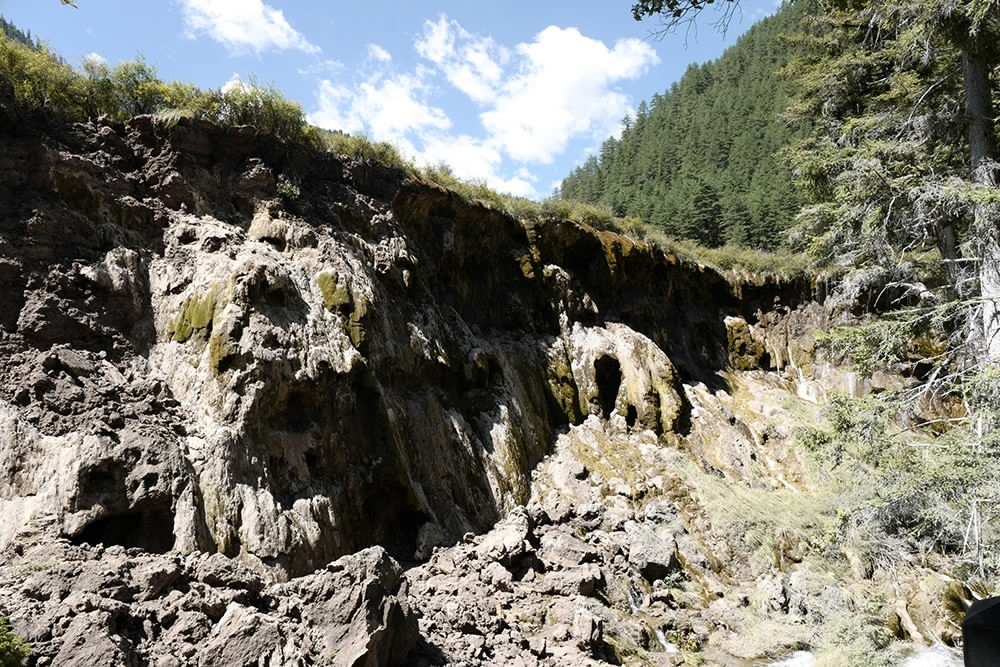
Opinions
14:49, 23-Oct-2017
Opinion: Why is water as valuable as gold?
By Peter Doran, Zachary Walsh, Philip Clayton

"Lucid waters and lush mountains are as valuable as gold and silver," Chinese President Xi Jinping has said.
A vision of "Ecological Civilisation" has emerged as an important element in the Chinese leadership’s global projection of soft power. Uniquely, this dimension of Chinese domestic/multilateral policy has origins both within China and in a far reaching dialogue with the international environmental policy community, notably elements within the United States academy.

Xi Jinping delivers a report to the 19th National Congress of the Communist Party of China (CPC) on behalf of the 18th Central Committee of the CPC at the Great Hall of the People in Beijing, capital of China, Oct. 18, 2017. The 19th CPC National Congress opens on Wednesday morning. /Xinhua Photo
Xi Jinping delivers a report to the 19th National Congress of the Communist Party of China (CPC) on behalf of the 18th Central Committee of the CPC at the Great Hall of the People in Beijing, capital of China, Oct. 18, 2017. The 19th CPC National Congress opens on Wednesday morning. /Xinhua Photo
President Xi Jinping told a group of lawmakers at an annual session of the National People’s Congress in Beijing in March that the concept of Ecological Civilisation should be implemented. According to Zhang Xiaode, director of the Ecological Civilisation Research Centre at the Chinese Academy of Governance, the CPC Central Committee considers ecological progress as vital to the future of both China and the world.
The concept was first listed along with economic, political, cultural and social progress as one of the five goals of China’s overall development plan at the 18th National Congress of the Communist Party in 2012 when Xi was the elected general secretary of the CPC Central Committee.
One of the most significant achievements of the policy was evidenced in the cooperation between the Chinese and US leaders in the lead up to the UNFCCC Paris Agreement.

File photo shows scenery of Saihanba in Weichang Manchu and Mongolian Autonomous County in Chengde, north China's Hebei Province. /Xinhua Photo
File photo shows scenery of Saihanba in Weichang Manchu and Mongolian Autonomous County in Chengde, north China's Hebei Province. /Xinhua Photo
So how should we understand this policy:
First, from China’s perspective, Ecological Civilisation is both a carrot and a stick. As a stick, it warns us that the foundations of our current Western civilization are not sustainable. As a carrot, it offers the concrete goal of a fully sustainable form of human existence on the planet based on multilateralism.
Second, Chinese policies connect this broad idea with specific initiatives, such as covering the country with high-speed electric trains and becoming the world's number one producer of solar panels. Of course, China has mobilized resources in the direction of sustainability more quickly, and often more radically, than any other country.
Third, President Xi clearly acknowledges the crisis that China, and the planet, face. Unlike the United States President, he makes no denial of the urgency of the situation.
Fourth, President Xi has shown the willingness to challenge the very wealthy and powerful concerns. The corporations do not completely control China. This is in stark contrast with the current US regime, including the interests represented by US President Donald Trump's cabinet.
China's policy around Ecological Civilization is about facing the future reality as anticipated by the global scientific community, including the UNFCCC IPCC. This is the antithesis of a predominant political culture of denial and strategic obfuscation sponsored by the fossil fuel and related interests across business and politics in the US.

Nuorilang Waterfalls /CAS Photo
Nuorilang Waterfalls /CAS Photo
Conservatives in the United States may argue about the short-term costs of certain environmental policies and regulations, but in fact, China's longer term planning represents a significant claim on future intellectual influence and the imaginations of up and coming generations.
While the Trump regime seeks to unravel progressive environmental legislation, hard won by civil society caucuses, the Chinese administration has demonstrated a willingness to invest in and expand the capacity of NGOs and pro-environmental media in order to counter anti-ecological forces in Chinese society.
It understands its commitments and investments in the future both in terms of enhancing its soft power and in terms of making wise infrastructure investments e.g. becoming a clean energy superpower, investing in smart urban design solutions, taking the lead in green finance initiatives such as green bonds and carbon tax.
A UNEP report on Ecological Civilisationstates that China offers a new model for global sustainable development.
(Zack Walsh (Ph.D. student, Process Studies, Claremont School of Theology) is a teaching assistant, a scientific committee member of Wise and Smart Cities, and a research fellow at the Institute for the Postmodern Development of China and the Institute for Advanced Sustainability Studies. His research engages process studies, contemplative studies, engaged Buddhism, cultural studies, sustainability studies, post-capitalism and China. Philip Clayton, Ingraham Professor at Claremont School of Theology, has taught and written for several decades on relations between science, religion, and ethics. The author or editor of some two dozen books, he now researches on societal changes that are necessary for establishing sustainable forms of civilization on this planet. Peter Doran PhD is a lecturer in law at Queens University Belfast, Northern Ireland, specializing in political ecology, the ‘attention economy’ and international relations, often drawing on Zen Buddhist philosophy. He has worked for parliaments in Belfast and Dublin, and recently authored a book on A Political Economy of Attention, Mindfulness and Consumerism: Reclaiming the Mindful Commons (Routledge, 2017). He is a founder member of the Green Party in Northern Ireland and a lifelong activist on environmental, ethical investment and social justice issues. The article reflects the authors' opinions, and not necessarily the views of CGTN.)

SITEMAP
Copyright © 2018 CGTN. Beijing ICP prepared NO.16065310-3
Copyright © 2018 CGTN. Beijing ICP prepared NO.16065310-3